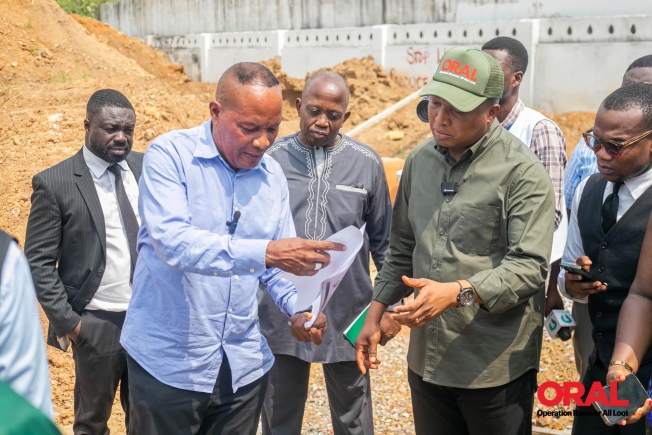The election of President John Dramani Mahama and the National Democratic Congress (NDC) in the last polls has come with high expectations from the Ghanaian populace for better living governance outcomes.
Among the expectations is a more vigorous fight against corruption in all its forms. Indeed, the NDC and its biggest political opponent, the New Patriotic Party (NPP), hinged a big part of their 2024 election campaign on their separate plans to fight graft in the country.
In the NDC manifesto, the party dedicated some space to its proposed Operation Recover All Loot (ORAL) as a targeted action against state officials who must have abused their offices or proximity to power supposedly to loot.
President Mahama gave full expression to this commitment even before assuming power when he put together a committee of five personalities with credentials in the anti-corruption space to receive and process complaints and evidence of corruption or loot by state actors for the necessary action.
That team, chaired by the North Tongu Member of Parliament, Samuel Okudzeto Ablakwa, also has former Auditor-General, Daniel Yao Domelevo; Commissioner of Police Kofi Boakye (retd); private legal practitioner, Martin Kpebu, and journalist, Raymond Archer, as members.
Over the last few days, the committee has begun site tours to some supposed state property allegedly grabbed by appointees of the immediate past government or persons said to be politically exposed. The site tours and public commentary have led to a public spat between the committee and the personalities named in some of the acquired state property.
Beyond the laudable intentions behind the creation of the committee, opinions are still divided in various circles about the legitimacy of the ORAL preparatory committee and its actions.
While we concede that there should be no cause for complaints or fears among those who have nothing to hide, the public spat could damage some reputations well before a court of competent jurisdiction makes a definite pronouncement on their guilt or otherwise.
Indeed, it is concerning that the ORAL team’s work is turning into a media trial that could have dire consequences for the reputation of individuals and groups before they get a proper audience from a properly composed court.
We believe that the committee needs the support of the public to conduct its work diligently. If for nothing at all, the proceeds of the work of the committee could come to support the national budget.
But we also advocate that the processes must be refined in order not to wrongly injure the image and reputation of any individual.
Corruption, it has been established, is an expensive enterprise on a nation’s purse.
At a stakeholders’ sensitisation forum on corruption reporting format to solicit the support of stakeholders for the National Anti-Corruption Action Plan in Cape Coast in August last year, the Deputy Commissioner of the Commission on Human Rights and Administrative Justice (CHRAJ), Richard Quayson, said endemic corruption swallowed on the average about 20 per cent of the national budget annually.
The amount, he explained, represented over 300 per cent of all aid Ghana received yearly.
There is no doubt that the consequences of corruption have festered for years, affecting the delivery of quality services by institutions, and stifling the pace of national development.
An African Union report on corruption on the continent in 2012 revealed that more than $148 billion was lost to corruption every year. The amount comprises funds meant for projects, programmes and policies but were diverted into the pockets of private officials.
Ghana’s slow-paced piecemeal development has the imprints of corruption and its effects all over it. ORAL, however, presents a unique opportunity to right some wrongs of state loot by actors in the political space.
It is ultimately an opportunity for the political class to show that the corruption tag does not fit all of them. It is a chance to win over a significant population that paints all politicians and politically exposed persons with the same corruption brush.
This must be attained in a refined form.

